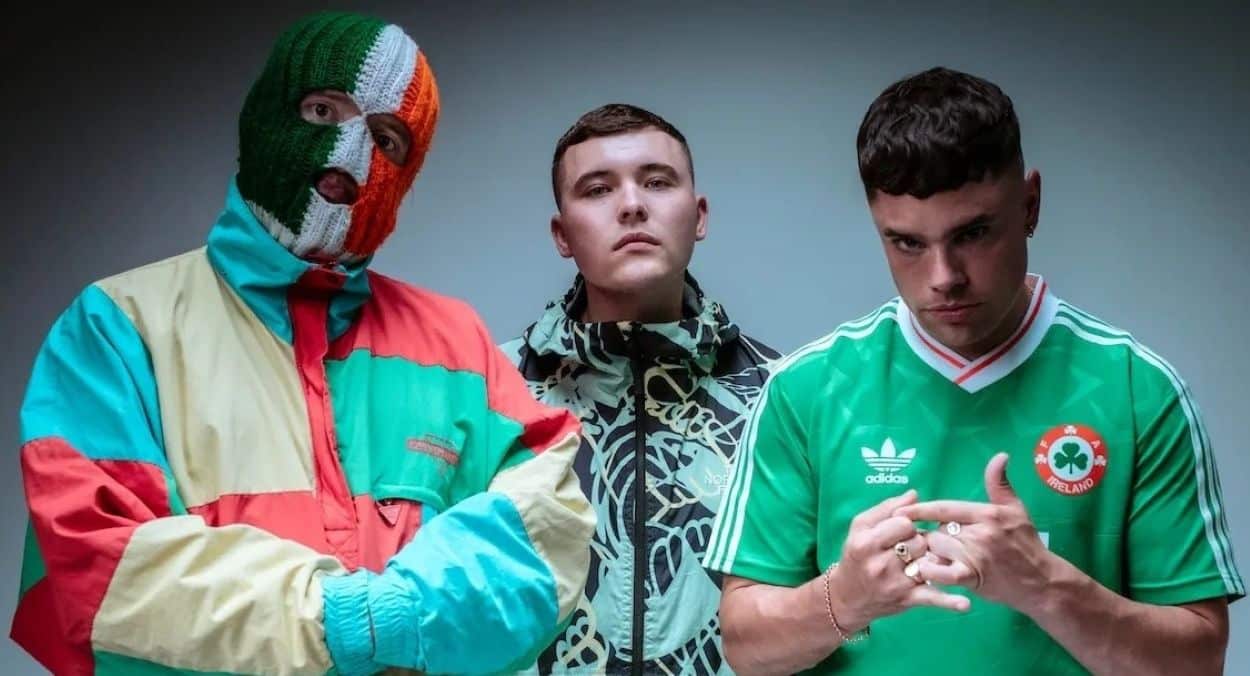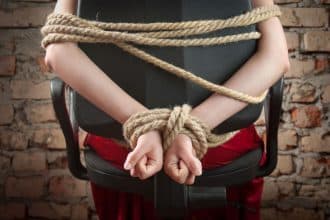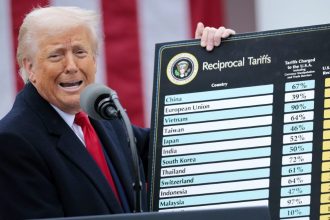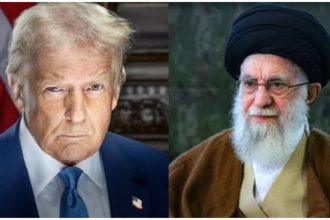On May 21, 2025, Liam Óg Ó hAnnaidh, also known as Mo Chara from the Irish-language rap group Kneecap, faced charges of a terrorism offence under the UK’s Terrorism Act 2000. This charge was related to an incident where he allegedly displayed a Hezbollah flag during a concert at London’s O2 Forum Kentish Town on November 21, 2024.
The 27-year-old Belfast rapper is due to appear at Westminster Magistrates’ Court on June 18, 2025, following an investigation by the Metropolitan Police’s Counter Terrorism Command, triggered by video footage that surfaced in April 2025.
The Metropolitan Police allege that Mo Chara displayed the Hezbollah flag “in a manner likely to arouse reasonable suspicion that he is a supporter of a proscribed organisation,” violating Section 13(1)(b) of the Terrorism Act. Hezbollah, a Lebanese Shia Islamist organisation, has been banned in the UK since 2019.. The footage also reportedly captures Mo Chara making provocative statements, including references to Hamas and inflammatory remarks about UK politicians, which are under separate police review for potential public order offences.
Kneecap have responded after band member Mo Chara was charged with a terror offense in the U.K. yesterday.
"This is political policing. This is a carnival of distraction. We are not the story. Genocide is."
More: https://t.co/XoxKKvuELi pic.twitter.com/rQM6gDvK5k
— Rolling Stone (@RollingStone) May 22, 2025Kneecap issued a statement denying support for proscribed groups like Hezbollah or Hamas, asserting that the flag display was an act of solidarity with Palestinians amid Israel’s military operations in Gaza, which Gaza’s health ministry reports have killed over 53,655 people as of May 20, 2025. “We do not support violence or terrorism,” the group said, claiming the footage was “misrepresented” to silence their activism. They expressed regret for any offence caused by their rhetoric, particularly referencing murdered MPs Jo Cox and David Amess.
Mo Chara, Móglaí Bap, and DJ Próvaí formed Kneecap in 2017, earning recognition for their provocative Irish-English rap that tackles themes of Irish nationalism and social justice. Their 2024 BAFTA-winning film and performances, like an April 2025 Coachella set projecting “Free Palestine,” have amplified their pro-Palestinian stance. The London concert incident led to cancellations in England and Germany, with critics like the American Jewish Committee labelling their actions as promoting terrorism, while supporters, including musicians like Pulp, decry the charge as censorship.
Kneecap claim UK terrorism charge is ‘carnival of distraction’ and ‘political policing’
Liam Óg Ó hAnnaidh who performs under the stage name Mo Chara, charged over alleged displaying of a Hizbullah flag at London gig
Read more: https://t.co/G9FOOmrwmr pic.twitter.com/lcoIEXNLIW
— The Irish Times (@IrishTimes) May 22, 2025The prosecution coincides with broader restrictions on pro-Palestinian expression in Europe, including Germany’s keffiyeh bans at protests, France’s dissolution of solidarity groups, and UK universities disciplining pro-BDS students. Nerdeen Kiswani of Within Our Lifetime called the charge “political repression,” arguing it distracts from Israel’s actions in Gaza. However, UK authorities maintain that supporting proscribed groups, even symbolically, violates counter-terrorism laws.
Kneecap’s Response and Ongoing Performances
Despite the charge, Kneecap continues to perform at London’s Wide Awake festival on May 23, 2025, where organisers expect increased Palestinian flag displays in solidarity. Mo Chara, charged via postal requisition, plans to contest the allegation, with Kneecap framing the case as an attack on free speech.
The case raises questions about the balance between artistic expression and legal limits on supporting proscribed organisations, especially amid heightened scrutiny of pro-Palestinian activism. The outcome of this case could reshape how UK authorities prosecute political statements in music, especially with the Gaza conflict drawing global attention and emotions running high. If the court rules against Kneecap, artists may need a lawyer before grabbing a microphone, and festival lineups could soon come with a legal disclaimer longer than the actual setlist.
In today’s climate, even a catchy chorus can land you in the dock, so musicians might want to start tuning their guitars and legal defences in equal measure. Irish Taoiseach Micheál Martin urged Kneecap to clarify their stance, while legal experts note the charge’s reliance on “reasonable suspicion” may face challenges in court.






